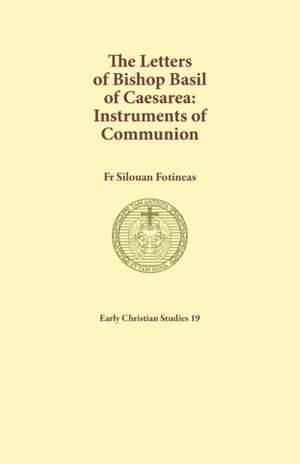The Letters of Bishop Basil of Caesarea
Autor Silouan Fotineasen Limba Engleză Paperback – 4 dec 2018
Preț: 305.08 lei
Nou
Puncte Express: 458
Preț estimativ în valută:
58.38€ • 60.32$ • 48.56£
58.38€ • 60.32$ • 48.56£
Carte tipărită la comandă
Livrare economică 19 martie-02 aprilie
Preluare comenzi: 021 569.72.76
Specificații
ISBN-13: 9781925730067
ISBN-10: 1925730069
Pagini: 396
Dimensiuni: 140 x 216 x 21 mm
Greutate: 0.46 kg
Editura: Sydney College of Divinity
ISBN-10: 1925730069
Pagini: 396
Dimensiuni: 140 x 216 x 21 mm
Greutate: 0.46 kg
Editura: Sydney College of Divinity
Notă biografică
Fr Silouan Fotineas is a Priest-monk of the Greek Orthodox Archdiocese of Australia. He is a Lecturer in Patristics at St Andrew's Greek Orthodox Theological College in Sydney and is the Parish Priest of the Holy Monastery of Saint Nectarios in Adelaide. He is a graduate of Theology from the Sydney College of Divinity and of Social Work from the University of Queensland, and has completed his Doctorate through the Australian Catholic University. His research interests include Patristics, Ecclesiology and Church History of Late Antiquity.
